July 2021
Learning
I read and reviewed Eating Animals by Jonathan Safran Foer and it's completely changed my relationship to food. I always knew there was a dark side to eating animals, but I chose not to engage the topic for years because I wanted to eat meat and ignorance helped. I finally turned toward the issue and was shocked at just how complete our transition has been from treating animals as kin to inputs of a factory machine and what that machine actually looks like. I concluded that I don't want to support industrial meat production and a vegetarian diet is the simplest way to do that. I recommend reading Eating Animals and wished I had read it sooner. Here are some delicious vegetarian dishes I've enjoyed: Recipes.
I also read and reviewed Marry Him by Lori Gottlieb. It was a curious book to pick up as a 30-something male, but I did take something away from it. I want to focus on finding a partner that meets a smaller set of key needs, not someone that meets a longer list of nice-to-haves, so I'll be placing less weight on shared interests and putting more emphasis on shared values moving forward.
I listened to a particularly good Ezra Klein podcast episode with Jeff Tweedy on creativity. My key takeaway here is that creativity is a deliberate process. Tweedy’s practice involves intentional wordplay and creating associations he might not otherwise form. For example, he might list verbs related to baseball and nouns related to emotions, and before he knows it, he’s contemplating what it means to "slide into love."
I read a good article on parenting that advocates putting kids into useful work situations at a young age. This aligns with my belief that learning should be applied whenever possible. The process of absorbing information, then making something, then sharing it creates feedback loops that engage the body and solidify the learning. When applying knowledge, you start to understand how the world actually works and realize that you can change it. You also get more comfortable with failure, and start to learn what types of work engage and sustain you (and which do not). See also: Learn, Build, Share, Repeat. I luckily stumbled into this pattern of learning when I was young by programming and it’s something I’ll want to cultivate for my children.
Making
After a long covid hiatus, our Chocolate making crew got back to work. Encouraged by a new friend and fellow chocolate maker, we made our first-ever batches of white chocolate. This is not something we ever thought we’d do. Our previous stance was that white chocolate wasn't “real” chocolate (it's just cocoa fat, milk, and sugar). But white chocolate provides a stage for flavors that might otherwise lose out to the strong taste of cocoa solids. Our Honey graham chocolate bar honors the subtle flavors of corn and malt powder, and our Sweet latte chocolate bar bar elevates the nuanced aroma of coffee.
Our beehive is going strong and we’re optimistic we can start harvesting honey in August. The Queen Bee Wikipedia page is just fascinating. Some new bee facts:
The difference between a queen and a worker bee is not genetic. Instead, the queen larvae is fed copious amounts of royal jelly which allows her to sexually develop. Worker bees are just sexually repressed could-bee queens.
The queen will mate with a few drone bees early in her life; this one-time copulation provides her with about 6 million sperm, which she will use over the course of her life (about 3 years)!
Worker bees (which live for about 6 weeks) take on different tasks as they get older. Although this isn’t a rigid system, workers will generally clean cells first, then feed larvae and tend to the queen, then build comb and transport food, and finally: pollinate.
Food
In other food-related news, I can’t recommend these Crispy potatoes enough. For the Fourth of July, my roommate made an excellent Spicy watermelon salad. I threw together some Doctored hummus with preserved lemon, paprika, salt, and olive oil—a good party trick. A friend introduced me to Nasturtium flowers; they taste like wasabi (!) and grow in the Presidio (!!); you can also eat the leaves, which are similar to watercress.
Play
After spraining my ankle on a tree root, I started swimming in Aquatic Park without a wetsuit and it’s kind of amazing. 10/10 would recommend. There's something so wonderfully raw about throwing yourself into cold, salty, tidal water to start the day.
If you didn’t watch the Olympics, there were a few great track and field events to see, especially the men’s and women's 400m hurdles.
I went sailing for the first time and there is a certain thrill to being keeled over at 45 degrees. While I enjoyed the experience, I wouldn’t recommend buying a boat because they do tend to be massive money sinks (as this particular boat owner has learned). “Boats are expensive” is like “hardware companies are hard” or “restaurants don’t make money” or “you can’t get time back”: wisdom that goes in one ear and out the other until it is experienced first-hand. We can know a thing to be true, but sometimes it takes living it to actually feel that it is true.
Next
I’ve started to learn more about our various food systems. The topic interests me because I spend a lot of time making and enjoying food with friends. I also love thinking in systems. The food system / climate overlap makes this problem both important and urgent: how can we adapt our food supply systems to better nourish us, care for our environment, and respect animals as kin?
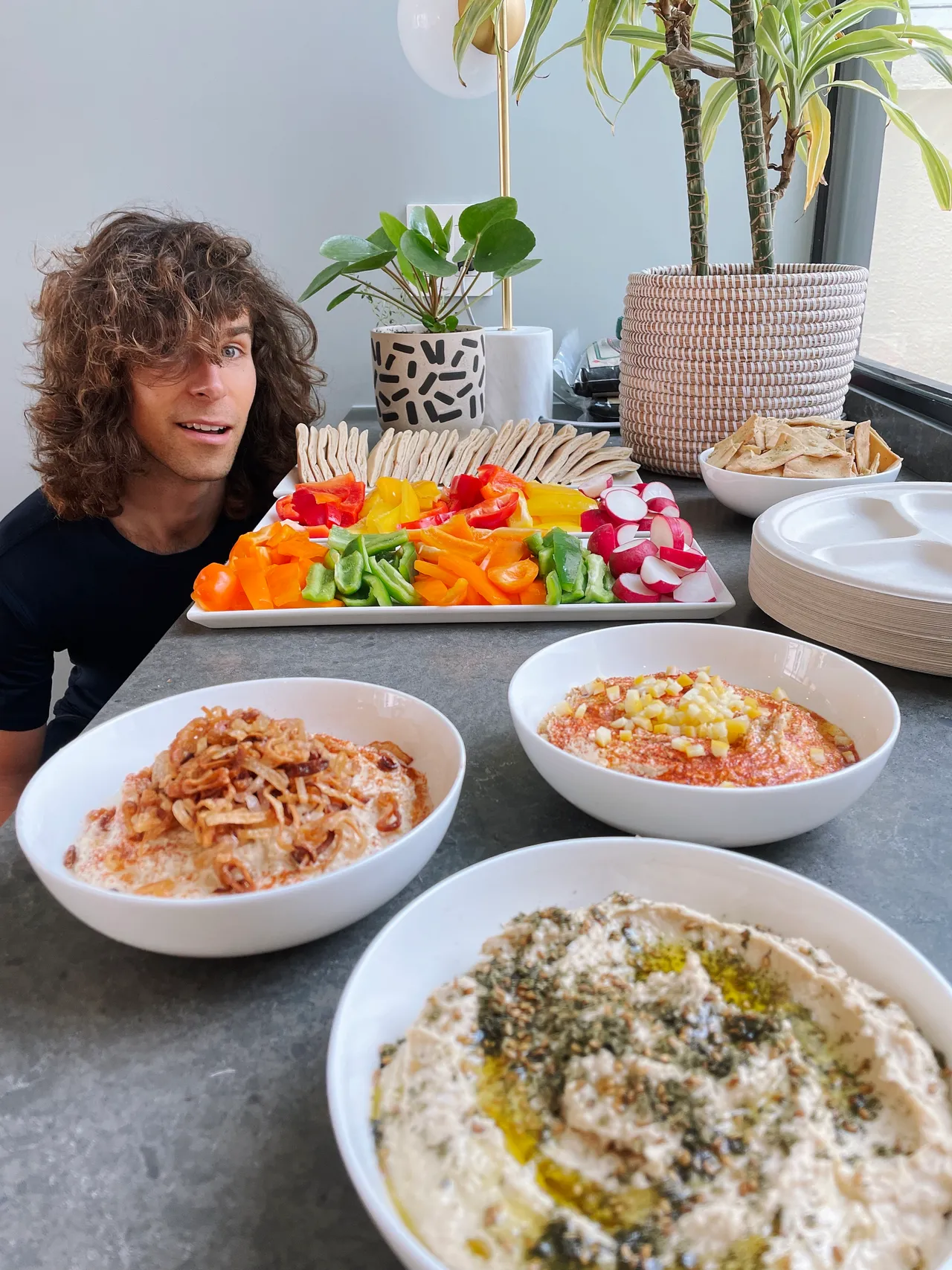
Doctored hummus experiments
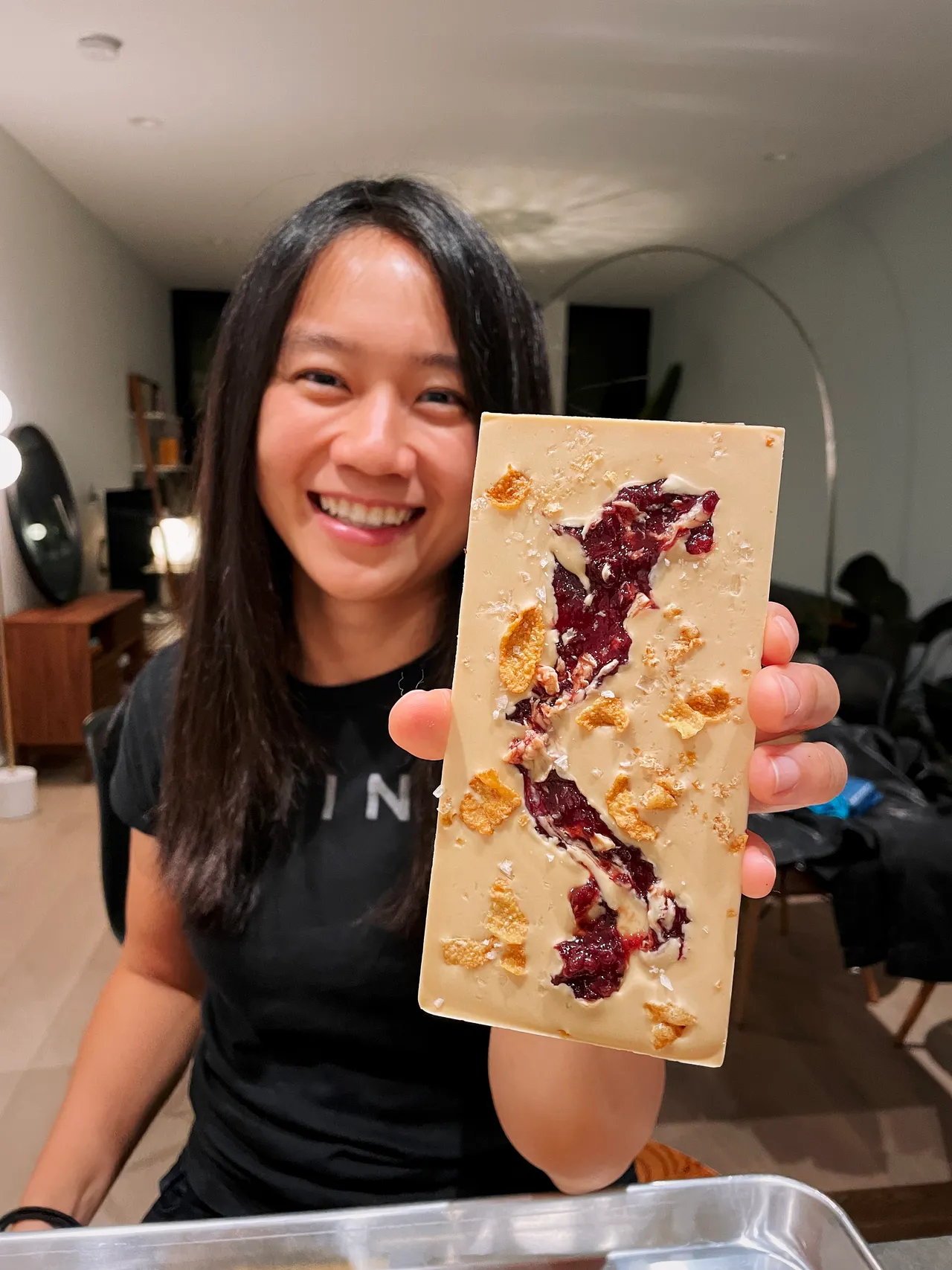
“Honey Graham” with cornflakes and jam
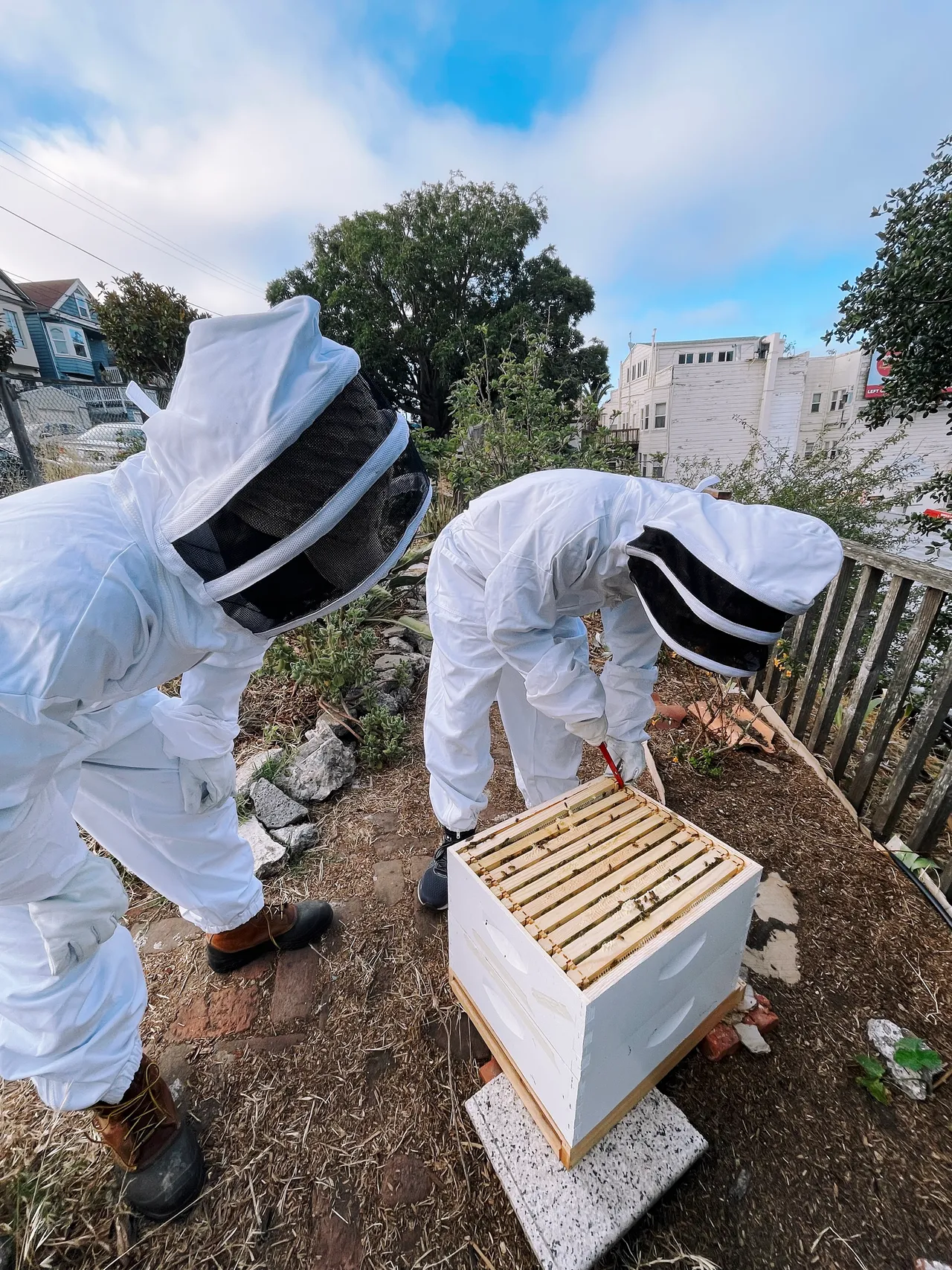
Inspecting the hive
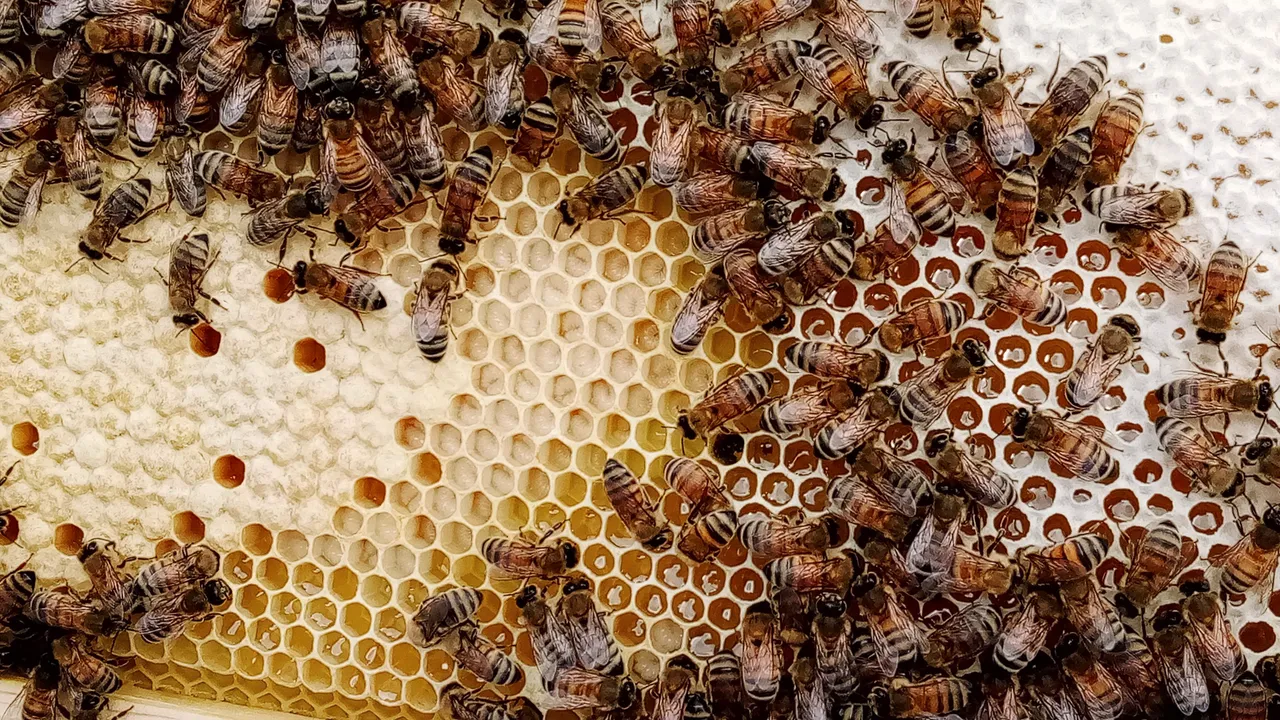
Honey cells in various states of completion
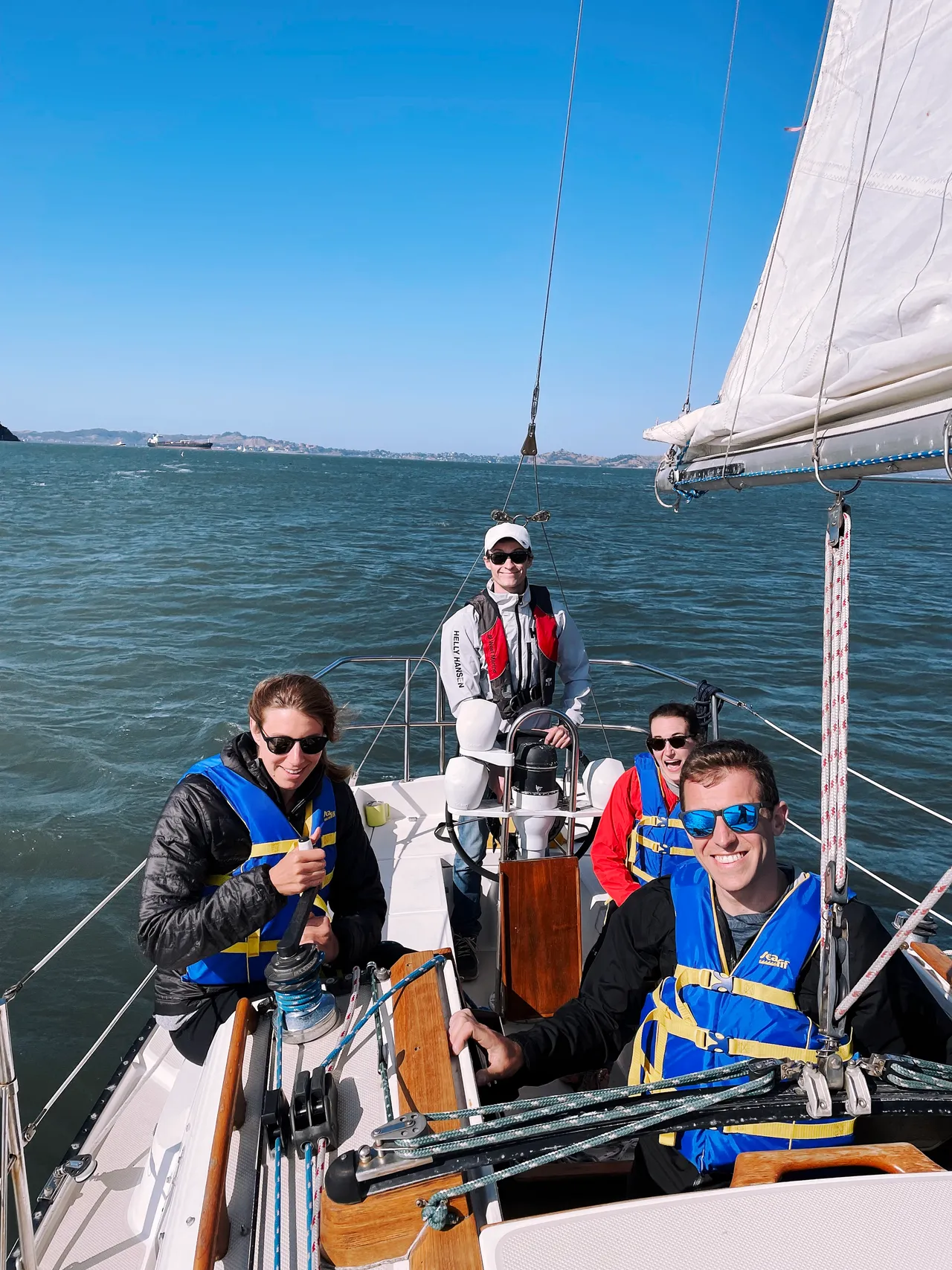
Sailing for the first time